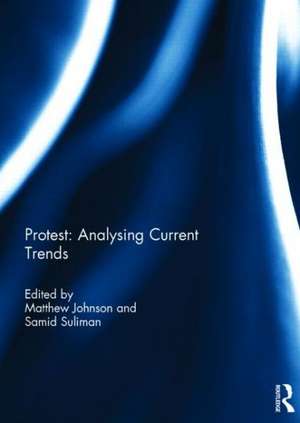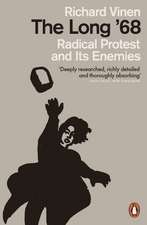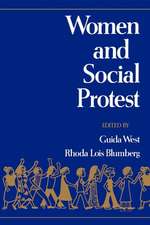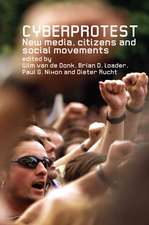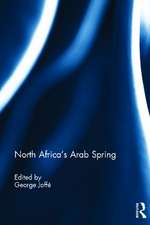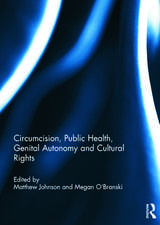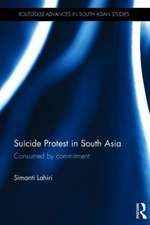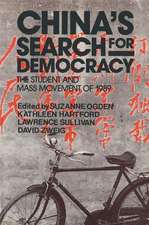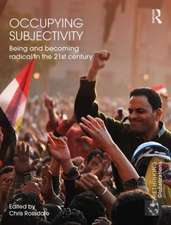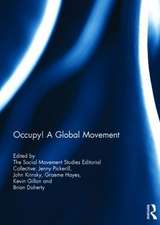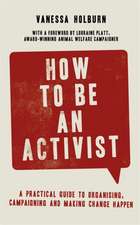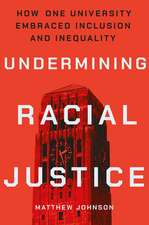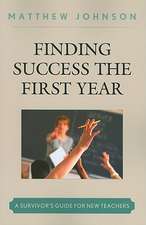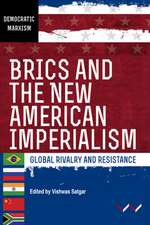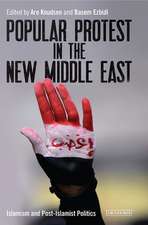Protest: Analysing Current Trends
Editat de Matthew Johnson, Samid Sulimanen Limba Engleză Hardback – 19 dec 2014
This book was published as a special issue of Global Discourse.
| Toate formatele și edițiile | Preț | Express |
|---|---|---|
| Paperback (1) | 179.74 lei 6-8 săpt. | |
| Taylor & Francis – 18 dec 2020 | 179.74 lei 6-8 săpt. | |
| Hardback (1) | 501.04 lei 6-8 săpt. | |
| Taylor & Francis – 19 dec 2014 | 501.04 lei 6-8 săpt. |
Preț: 501.04 lei
Preț vechi: 668.02 lei
-25% Nou
Puncte Express: 752
Preț estimativ în valută:
95.89€ • 99.74$ • 79.16£
95.89€ • 99.74$ • 79.16£
Carte tipărită la comandă
Livrare economică 14-28 aprilie
Preluare comenzi: 021 569.72.76
Specificații
ISBN-13: 9781138841086
ISBN-10: 1138841080
Pagini: 306
Dimensiuni: 174 x 246 x 15 mm
Greutate: 0.68 kg
Ediția:1
Editura: Taylor & Francis
Colecția Routledge
Locul publicării:Oxford, United Kingdom
ISBN-10: 1138841080
Pagini: 306
Dimensiuni: 174 x 246 x 15 mm
Greutate: 0.68 kg
Ediția:1
Editura: Taylor & Francis
Colecția Routledge
Locul publicării:Oxford, United Kingdom
Cuprins
1. Introduction: Protest 2. Counter-hegemonic networks and the transformation of global climate politics: rethinking movement-state relations Jackie Smith Reply by Ronaldo Munck 3. Occupy Dame Street as slow-motion general strike? Justifying optimism in the wake of Ireland’s failed multitudinal moment Nicholas Kiersey Reply by Simon Springer 4. The multitude and localized protest: the example of the Quebec student strike Philippe Fournier Reply by Keir Milburn 5. The Global Justice Movement and OccupyWall Street: spillover, spillout, or coalescence? Helma G. E. de Vries-Jordan Reply by Gilberto Algar-Faria 6. Transnational feminist solidarity and lessons from the 2011 protests in Tahrir Square Sally J. Scholz Reply by Wendy Harcourt 7. Who is speaking? The Indignados as political subjects Emmy Eklundh Reply by Ernesto Castañeda 8. Recruitment, counter-recruitment and critical military studies Matthew F. Rech Reply by Ben Wadham 9. The containment of Occupy: militarized police forces and social control in America Matthew Morgan Reply by Victor E. Kappeler 10. Protests, emotions and democracy: theoretical insights from the Indignados movement Paolo Cossarini Reply by Lasse Thomassen 11. Being the change: protest as performative discourse in the Occupy Portland encampment Lois Ruskai Melina Reply by Sanford F. Schram 12. Digital image politics: the networked rhetoric of Anonymous Jason L. Jarvis Reply by Roger Stahl 13. Global days of action, global public transcripts and democracy Catia Gregoratti Reply by Mark Chou 14. Book Review Symposium: The Democracy Project, By David Graeber Reviews by Lasse Thomassen, Gemma Bone, Jonathan Dean Response by David Graeber Book Review Symposium on Rethinking Latin America: Development, Hegemony, and Social Transformation, By Ronaldo Munck 15. Toward a 21st Century reading of Latin America: a sympathetic critique of Ronaldo Munck’s Rethinking Latin America: Development, Hegemony, and Social Transformation William I. Robinson Rethinking political economy from Latin America Ronaldo Munck
Descriere
How best should we understand the recent proliferation of often diverse and contradictory protest movements, including those associated with Occupy and the Arab Spring? This book explores the nature of these movements and the responses of authorities to protest and emotion and public performance in, and representation of, protest.
This book was published as a special issue of Global Discourse.
This book was published as a special issue of Global Discourse.
Notă biografică
Matthew Johnson is a Lecturer and British Academy Postdoctoral Fellow in Politics, Philosophy and Religion at the University of Lancaster. He is interested in the evaluation of culture and the effect of forms of intervention on wellbeing. He has authored Evaluting Culture (Palgrave) and edited The Legacy of Marxism (Continuum).
Samid Suliman is a doctoral candidate, sessional lecturer and tutor in the School of Political Science and International Studies at The University of Queensland. His research explores migration and mobility in the political economy of global development. Samid is also a researcher at The University of Queensland’s Aboriginal Environments Research Centre.
Samid Suliman is a doctoral candidate, sessional lecturer and tutor in the School of Political Science and International Studies at The University of Queensland. His research explores migration and mobility in the political economy of global development. Samid is also a researcher at The University of Queensland’s Aboriginal Environments Research Centre.
